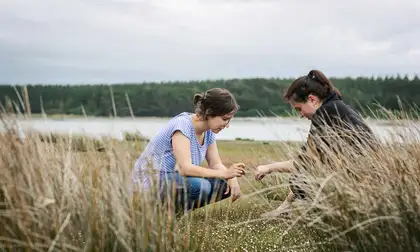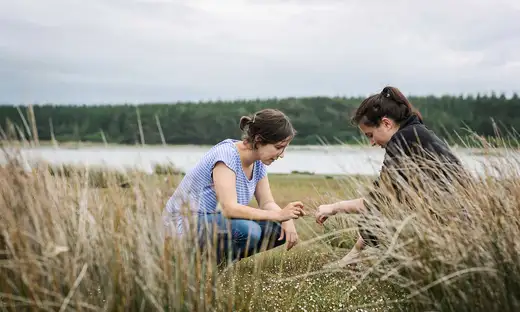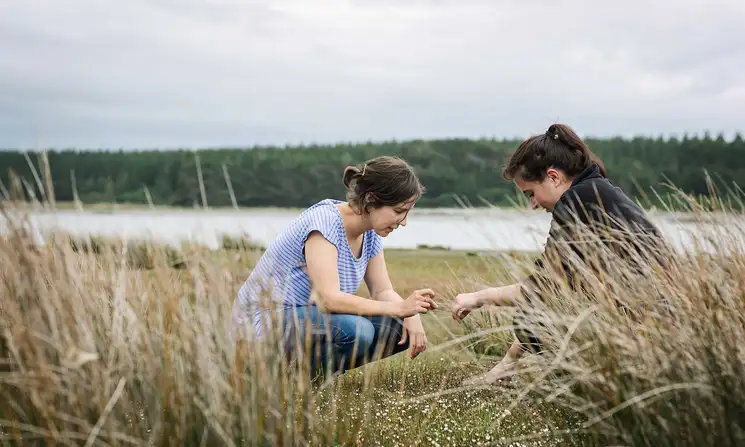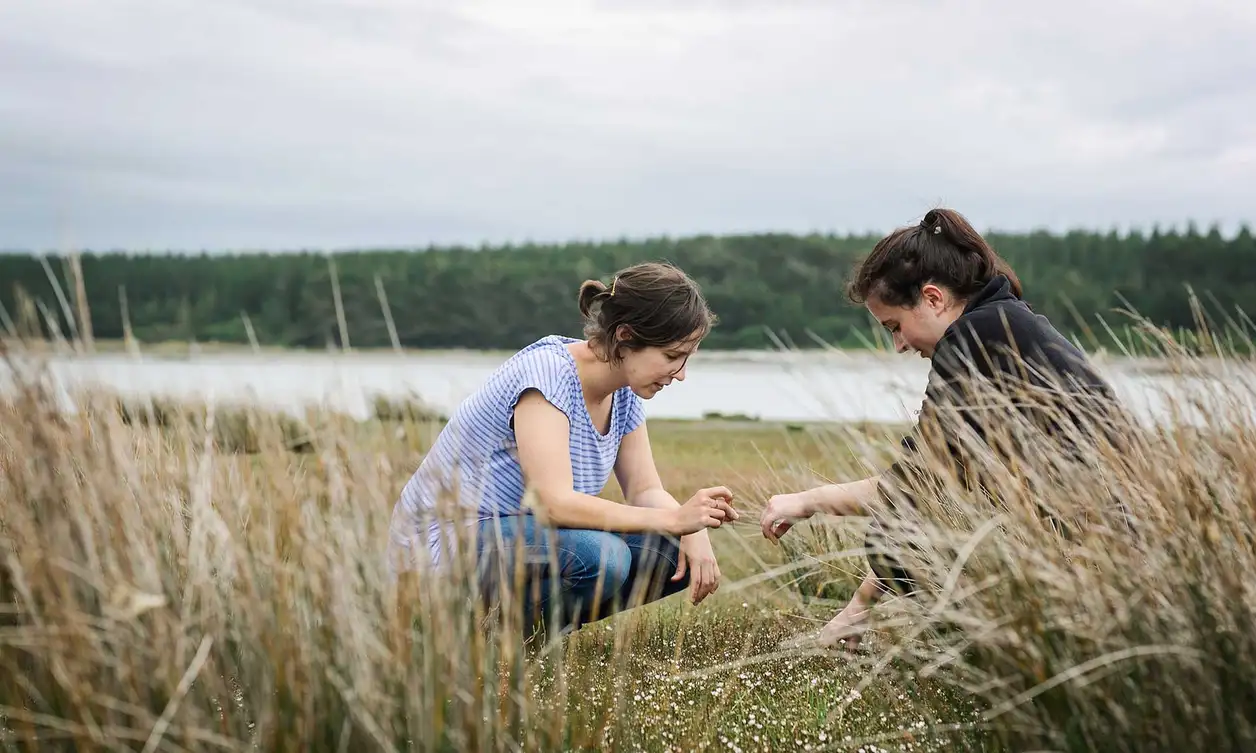On this page
- Sustainable commuting and travelling initiatives
- Sustainability – a key focus for new buildings
- Recording and preserving cultural heritage
- Funding awarded for research on disasters
- Disaster Experiences in Ōtautahi Christchurch: lessons and perspectives
- Invercargill Initiative wins Social Impact award
- Related content
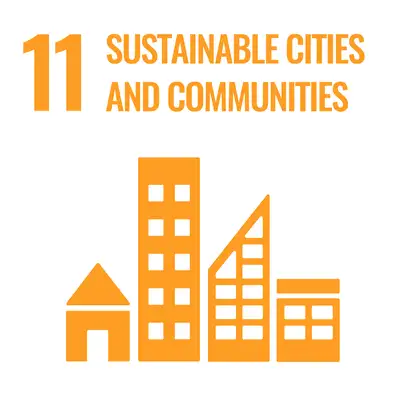
Sustainable commuting and travelling initiatives
Massey University’s Carbon Action Plan includes targets for more sustainable commuting and travelling, including a 30 per cent reduction in land transport-related emissions and increasing EVs in the fleet to 90 per cent of the total by 2030.
To help meet these targets, Massey published guidelines for low-carbon travel in 2022.
In September 2023, the Sustainability office commuting survey found that 74 per cent of staff and student respondents use buses for most or all of their commutes to and from campus, with 94 per cent using buses for at least half of their trips. When they’re not commuting by bus:
- 38 per cent travel in a shared vehicle
- 18 per cent run or walk
- 18 per cent cycle or e-scooter
- 44 per cent think they could commute by bus more often.
Massey staff and students using a Horizons Bee card can use buses for free within Palmerston North City and travel to and from campus.
On the Wellington campus, electric bicycles can be borrowed for free by students and staff.
Aotearoa Collective for Public Transport Equity
Massey pledged its support for the Aotearoa Collective for Public Transport Equity. The Collective is a group of around 60 organisations that have joined forces to seek free public transport for tertiary students, Community Services Card holders and under 25s.
Massey voices its support for free public transport for students
Sustainability – a key focus for new buildings
Massey has committed that all new buildings achieve the “5 Green Star New Zealand Excellence” rating in the “Green Star” building standard or the equivalent. This standard is a sustainability rating system certified by the Green Building Council Australia.
The newly built Veterinary school Student Learning Complex and Post-Mortem/Production Animal Hospital facility incorporate numerous sustainability features in their design.
- Insulation-enhanced walk-in chillers and freezers.
- Lab areas linked with the Campus Building Management system, which allows remote control of building systems and setting time schedules.
- LED lighting with intelligent control systems to reduce lighting when not required.
- Specialised lab equipment, including speed-adjustable fans, increases energy efficiency.
- Modular lab joinery minimises material wastage and allows for future adaptability.
- Passive ventilation and motorised dampers shut down ventilation in unoccupied spaces.
- Use of long-lasting, low-maintenance materials. For example, brickwork along University Avenue and glazing in some areas absorb UV light, protecting equipment and building materials.
- Heat recovery units and carbon dioxide sensors reduce heating and cooling costs.
- Sensor taps throughout the buildings reduce water wastage.
Massey's sustainable building practices
Massey is committed to promoting sustainable building practices on campus and in our construction qualifications. This video explains more about the green features within some of our new buildings and what our built environment researchers are exploring to improve the sustainability of buildings of the future.
Recording and preserving cultural heritage
Massey delivers many projects to record and preserve intangible cultural heritage. Examples include:
- Ngā Kupu Ora collections. These collections with significant Māori content include books, journals, newspapers, audiovisual material and images. The collections are in the Auckland and Manawatū campus libraries.
- Massey's School of Māori Knowledge, Te Pūtahi-a-Toi, seeks to retain and develop New Zealand's heritage and contribute to the advancement of Indigenous Peoples.
- The university's many qualifications preserve Māori knowledge. For example, the Bachelor of Māori Visual Arts is a degree dedicated to recording, preserving and nurturing Māori art and traditions.
- The university's growing art collection, which focuses on contemporary New Zealand artists – strengthened in recent years by the acquisition of contemporary Māori work.
Furthermore, Massey was instrumental in the development of The Proverb Pathway. A unique community project in Palmerston North featuring an outdoor staircase engraved with proverbs from many diverse languages and cultures. This Welcoming Communities initiative is preserving the culture of both our local communities and displaced ones.
Funding awarded for research on disasters
Dr Ruggiero Lovreglio received a Rutherford Discovery Fellowship for research on evacuation plans to reduce loss of life and injury in disaster events.
MBIE Endeavour Funding of almost $1 million will help answer the difficult question of when a volcano will erupt. Another Massey-led project, funded by a Toka Tū Ake EQC Biennial Grant, investigates how to communicate volcanic risk to the public.
A research project co-funded by Massey and Toka Tū Ake EQC (the Earthquake Commission) enabled an international group of scientists to develop a new earthquake early-warning system.
Disaster Experiences in Ōtautahi Christchurch: lessons and perspectives
A new book, A Decade of Disaster Experiences in Ōtautahi Christchurch: Critical Disaster Studies Perspectives, was published and co-edited by Professor Bruce Glavovic. It reveals important lessons from real-world experiences of living through earthquakes, floods, the COVID-19 pandemic, a terrorist attack, climate change impacts and more.
Invercargill Initiative wins Social Impact award
The Invercargill Initiative – Creating a Bright Future with Invercargill’s Young People, won an award in the Social Impact category of the Australian Good Design Awards in recognition of outstanding design and innovation. The aim of the initiative was to make meaningful differences in the lives of young people experiencing exclusion and disadvantage in Invercargill.
